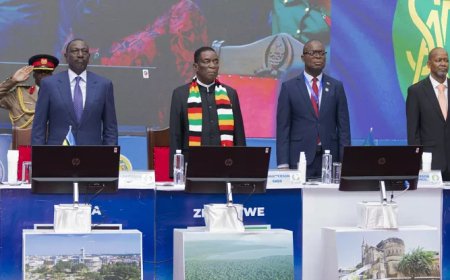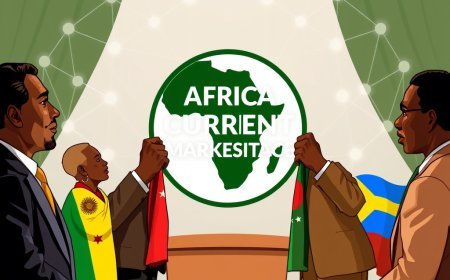Trump and Bukele Reject Ruling to Return Mistakenly Deported Salvadoran Man Amid Legal and Diplomatic Tensions

In a growing international dispute, both U.S. President Donald Trump and El Salvador’s President Nayib Bukele have refused to comply with a ruling aimed at returning Kilmar Abrego Garcia, a Salvadoran man who was mistakenly deported from the United States despite being under legal protection.
Abrego Garcia, a 29-year-old father residing in Maryland, had been living in the U.S. since 2019 under a "withholding of removal" status—legal protection granted due to credible threats against his life from gang violence in El Salvador. However, on March 12, 2025, he was arrested by U.S. Immigration and Customs Enforcement (ICE) and deported three days later, in direct violation of a court order that explicitly barred his removal.
ICE has admitted the deportation was a bureaucratic mistake, yet the consequences have been severe. Upon his arrival in El Salvador, Abrego Garcia was immediately imprisoned in the country’s high-security Terrorism Confinement Center (CECOT), notorious for holding alleged gang members under extreme conditions. The Trump administration has claimed Garcia is affiliated with the MS-13 gang—a claim his legal team and advocates fiercely dispute, citing lack of evidence and his legal standing in the U.S.
Although the U.S. Supreme Court ruled that the federal government must “facilitate” Garcia’s return, it stopped short of ordering the administration to bring him back. The Trump administration has interpreted the ruling narrowly, asserting that it is not obligated to act unless El Salvador voluntarily releases him—a move President Bukele has flatly refused.
Bukele has stated that he has no legal grounds or political intention to send Garcia back, effectively shutting the door on any diplomatic resolution for now. He insists that Garcia will remain incarcerated under Salvadoran law.
The standoff has sparked outrage among human rights groups and immigration advocates, who view the case as a chilling example of how administrative errors and political posturing can override judicial decisions and endanger vulnerable individuals. Legal experts warn that this situation raises serious concerns about the rule of law, the limits of executive power, and the fragile nature of international cooperation in matters of human rights and immigration enforcement.
As the situation remains unresolved, Garcia’s future hangs in the balance—caught between two governments unwilling to take responsibility and a legal system struggling to enforce its own authority.
What's Your Reaction?
 Like
0
Like
0
 Dislike
0
Dislike
0
 Love
0
Love
0
 Funny
0
Funny
0
 Angry
0
Angry
0
 Sad
0
Sad
0
 Wow
0
Wow
0















